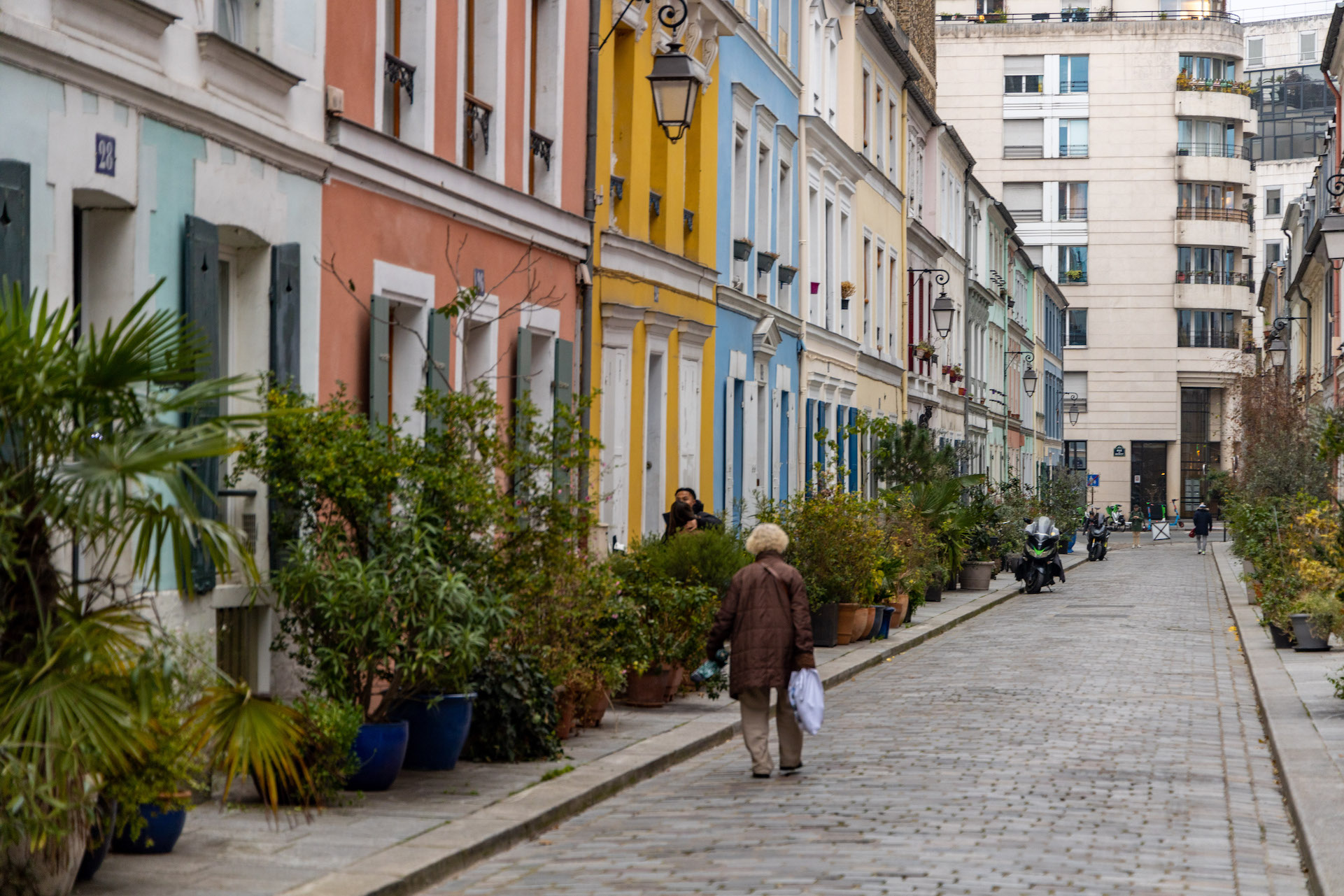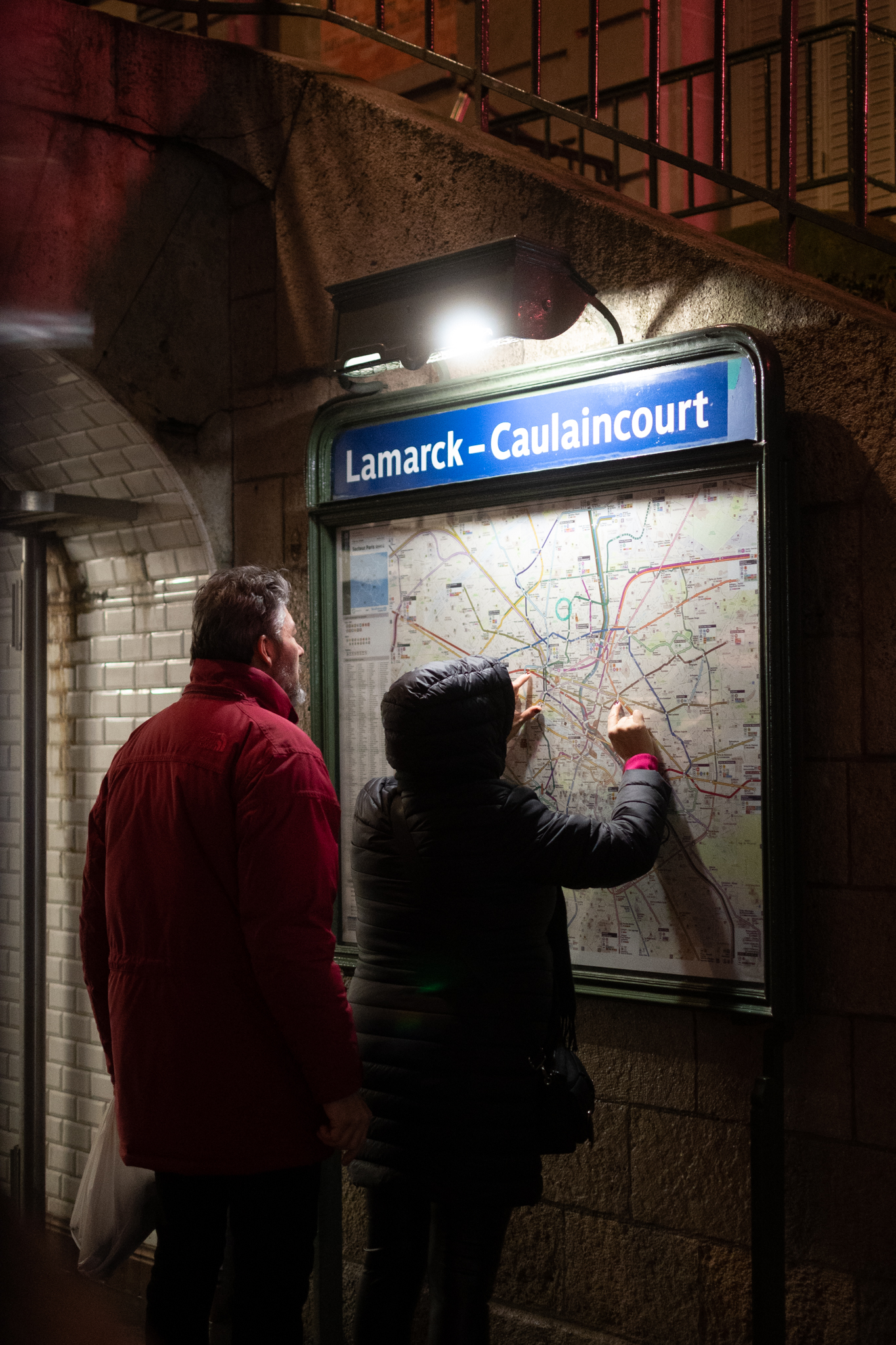Pardon your French: A crash course for beginners
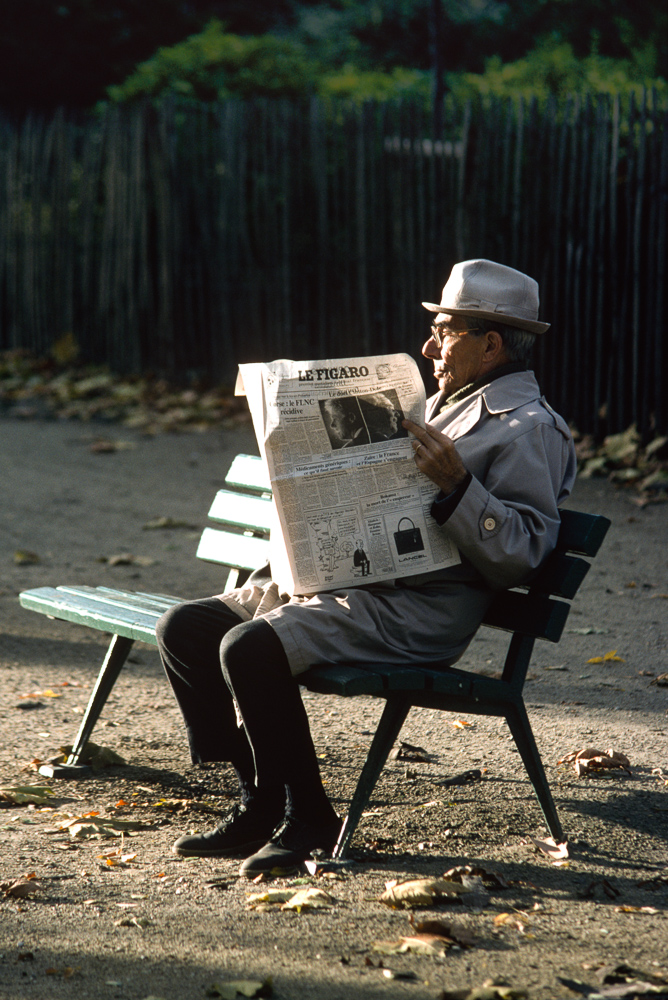
So you’re coming to Paris without speaking a word of French? Oh, we see, you like living on the edge. We’re kidding, of course; the cliché of the monolingual Parisian is long outdated. Thanks to social media and Netflix, most of Gen Y and Z know at least some English, and many are fluent. Still, it doesn’t hurt to know the basics. You’ll find that speaking at least a few phrases in the local language will be widely appreciated. Plus, you won’t be seen as an ignorant tourist, which is really all one can hope for when traveling.
Welcome to your French 101
Bonjour – hello
You say this to EVERYONE. When you enter a shop, a restaurant, a bakery, or your hotel. There are people that won’t even speak to you, if you don’t say the magic word first.
Rebonjour – well, hello again
This is used if you see someone twice in one day (f.e. because you went back to the bakery for more delicious croissants aux amandes as soon as you finished the first batch).
Bonsoir – good evening
It’s like bonjour but after 7pm, depending on the season starting even earlier. Basically, you can switch to bonsoir as soon as the sun sets.
Bonne journée / bonne soirée – have a nice day / evening
A more polite way to say goodbye, instead of just saying au revoir.
D’accord – okay
Alternatively, just say okay but with a French accent (which sounds like oké).
Je m’appelle (your name) – my name is
You can switch it up with Moi, c’est (your name), especially as a response to someone who has just introduced themselves to you.
ça va ? – how are you?
The answer to this is also ça va, which in this context means I’m fine.
Je t’aime – I love you
Not to be confused with Je t’aime bien or Je t’aime beaucoup, which mean that you’ve just been friendzoned.

Une tradition pas trop cuite s’il vous plaît – one not-too-burnt traditional baguette please
Always ask for une tradition if you’d like to order the good baguette without any additives. Asking for une baguette on the other hand will get you a cardboard-like excuse of bread filled with who knows what.
Un verre de rouge / blanc s’il vous plaît – a glass of red / white wine please
You can, of course, French it up and order a bottle straight away. Simply say une bouteille instead of un verre.
Une carafe d’eau s’il vous plaît – a jug of water please
Water – tap water that is – is free by law and if the restaurant doesn’t automatically bring you one, you should always ask for a carafe. Many tourists aren’t aware of this and ruin themselves with Evian and Perrier by the liter.
Ça va pas, quoi ?! – are you out of your mind?!
Used when someone does or says something annoying or brash (literally translated it means ‘it’s not ok, what?!’). It’s important that you phrase it as a question, but an outraged one.
Ben / bah / euh – *filler words*
These are more sounds than actual words, but you’ll encounter them everywhere. If you want to blend in with the locals, begin your sentence with either one of the three and make sure you drag it out.
An example:
Paul: Ben, j’ai faim ! On mange où ? (*very French noise that doesn’t mean anything* I’m hungry. Where should we go to eat?)
Léa: Bah, j’en sais rien, moi. T’as envie de quoi ? (*very French noise that doesn’t mean anything* no idea. What do you feel like?)
Paul: Euh… un McDo ? (Er…McDonalds?)
If someone suggests going to McDonalds in a culinary haven like Paris, he deserves a hearty ça va pas, quoi ?!
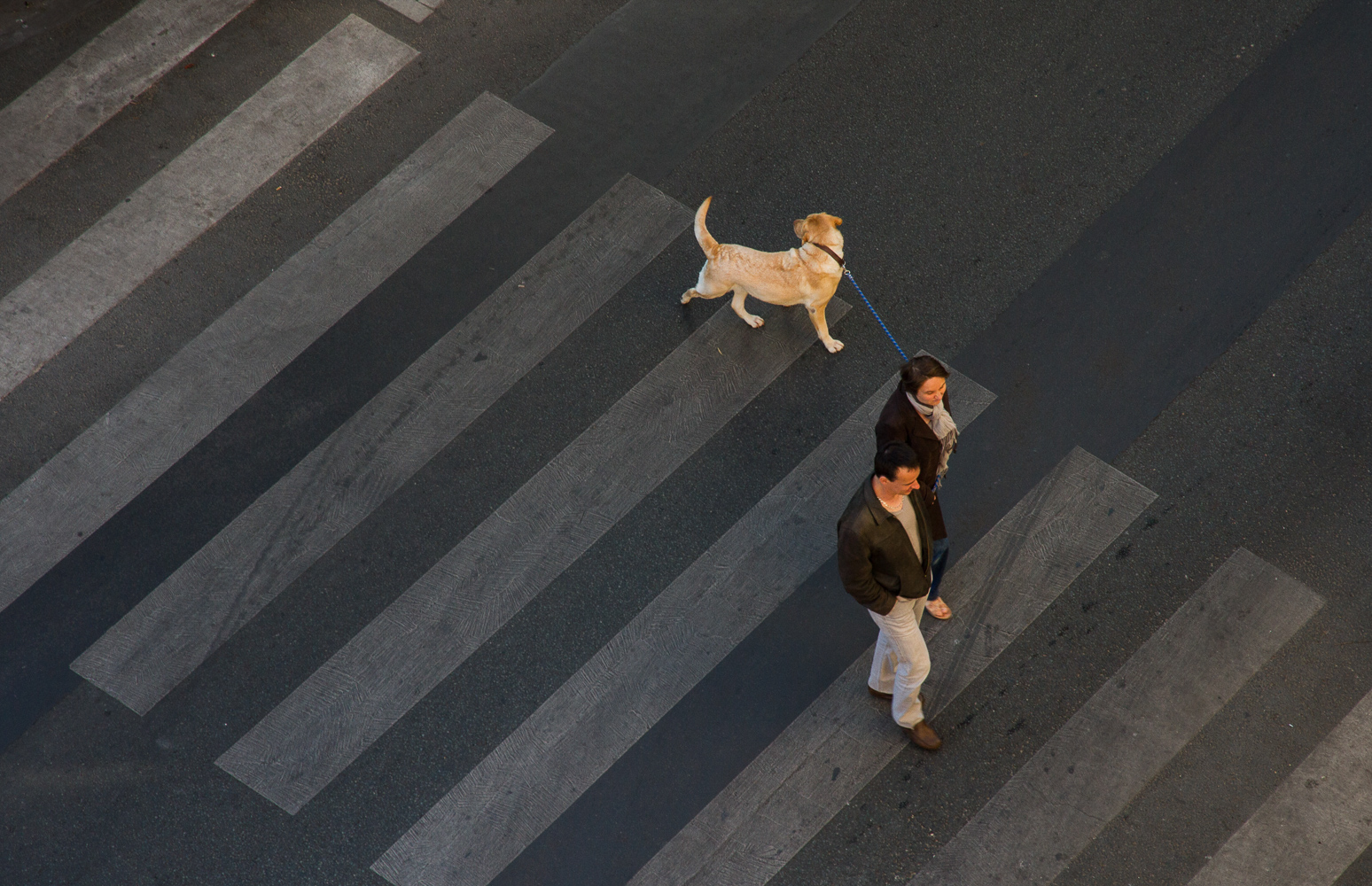
French slang: from argot to verlan
Now that you know the basics, you might as well learn some French slang. Even if you know the ‘correct’ French, you can be lost in normal conversation because most (younger) people use some kind of slang in their everyday vocabulary.
There are two kinds of slang: the ‘normal’ kind, as we know it in English, and a special kind called verlan, which reverses the syllables in a word. For example, lourd (‘heavy/crude/annoying’) becomes relou, femme (‘woman’) becomes meuf and mec (which is already argot of homme -> ‘man’) becomes keum. Even the word verlan itself is an example of verlan, coming from l’envers (‘the opposite’).
Some examples of non-inverted argot are:
Kiffer – to enjoy
This is a good example of how the French language has evolved with immigration. The verb kiffer is an adaptation of the Arabic word kif, which means pleasure or joy.
Bouffer – to eat
It’s a rather crude way of saying eating, but it would be appropriate to describe what Paul in the example above is doing with his purchases from McDonal’s.
Pote – buddy
It’s a loose term that can be used to describe anything from an acquaintance to an actual friend. In general, you can become someone’s pote fairly quickly, but it takes dedication and time to become an ami(e).
Askip – it seems that…
The abbreviation of à ce qu’il paraît, often used in text messages.
Bosser – to work
Unfortunately, bosser dur (‘to work hard’) doesn’t automatically make you the boss one day.
Clope – cigarette
If you want to join the unhealthy Parisians who are freezing their butts off on a terrace to smoke, ask them for une clope instead of a cigarette.
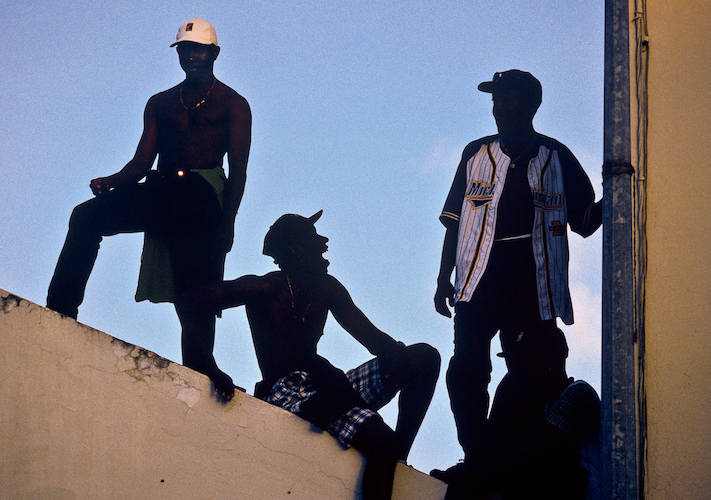
And now on to the special category, verlan:
Ouf -> fou – amazing (originally: crazy)
The word ouf can have several meanings. Literally, it means crazy, and it can be used as such, but most of the time it’s used to say the opposite, that something is amazing.
Chanmé -> méchant – amazing/remarkable/great (originally: mean)
The inversion of méchant doesn’t have the same meaning at all, quite the contrary. It’s used to express great admiration for something.
Cimer -> merci – thanks for nothing (originally: thanks)
Once again, nothing is what it seems in verlan. When someone says cimer instead of merci, it’s usually ironic.
Teuf -> fête – party
Maybe your ability to blend in linguistically will even get you invited to a teuf. In this case, don’t forget to bring a bottle of wine as a courtesy.
Chelou -> louche – weird/bizarre
Some French customs, such as la bise – kissing people you’ve just met, can seem chelou if you’re not used to it.
Comme as -> comme ça – like this
You might also encounter horrible spelling variations like kom ass.
And just when you thought you had the hang of verlan, it evolves again! There are now some words that have been double inverted. Like meuf, which has turned into feumeu and is ironically almost back to where it started, femme. Don’t be discouraged, French is hard, even for natives (there are plenty of adults going back to school in order to relearn proper grammar). Always remember: even just saying bonjour when you meet someone already goes a long way.
Getting your personalized travel guide full of insider addresses and places where locals hang out is the best way to get an authentic experience of Paris. All you need to do is fill out our form and we’ll take care of the rest.






